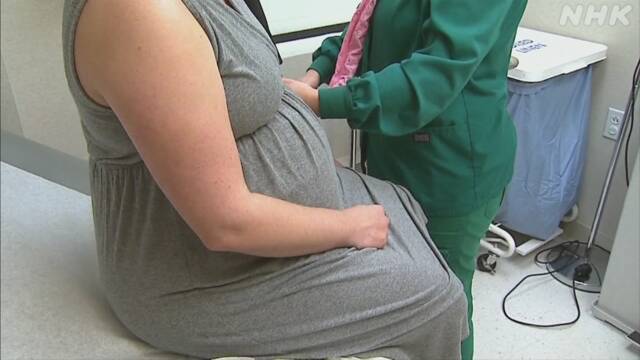With regard to the new coronavirus vaccine, which is being inoculated in various countries, more than 50,000 pregnant women, who are said to be at high risk of becoming seriously ill when infected, have already been inoculated in the United States.
Information on safety is still limited, but multiple studies on pregnant women are underway, and it is hoped that more information will be available in the future.
About vaccination of pregnant women with the new coronavirus The US CDC = Centers for Disease Control and Prevention says that although there is limited information on safety and efficacy, "pregnant women are at high risk of becoming seriously ill if infected. It is unlikely that the vaccine currently being vaccinated in the United States has a specific risk. "
According to the CDC, more than 51,000 pregnant women have already been vaccinated as of the 15th of this month, but no vaccine-related effects on pregnancy have been reported.
In addition, according to a survey of about 1800 pregnant women published by the CDC, the proportion of vaccinated women who have effects on the mother and fetus such as pregnancy complications and premature birth is not vaccinated. The results show that it does not change compared to humans.
Regarding the effects on pregnant women, the pharmaceutical company that developed the new coronavirus vaccine has started clinical trials to confirm its safety and efficacy, and several research institutes are also conducting research, and inoculation will be done in the future. It is hoped that more detailed information will be available, such as when to receive the vaccine and how much vaccine antibodies will be transferred to the fetus.
Japanese woman who decided to inoculate "It is necessary to collect information and make a convincing decision"
Mai Uchida, who works as a psychiatrist at a hospital at Harvard University in the United States, was (38) pregnant and was vaccinated with the new coronavirus vaccine twice from January to February.
I found out that I was pregnant in May last year when the spread of the new coronavirus was becoming serious in the United States, but at that time, Mr. Uchida, who was supporting medical treatment at the hospital where I work, said, "In the situation where the infection spreads. I was worried about having to go to the hospital and what kind of experience I would have if I got infected during pregnancy. "
After that, Mr. Uchida, who wanted to avoid the effects of infection on pregnancy and the foetation, gathered scientific information about the new coronavirus vaccine and decided that it was unlikely that it would affect children in the stomach, so he inoculated it. Is said to have decided.
Mr. Uchida said, "Because I am afraid of the vaccine, the decision not to receive the vaccine also carries another risk of being infected with the virus. It has been confirmed that it is safe enough for the general public, and it has an impact on the mechanism of the vaccine. It's hard to imagine, so I decided that the benefits of vaccination would outweigh the risks. "
On top of that, "I think pregnant women are full of not only the new coronavirus but also various burdens and anxieties. Those who are even more anxious about vaccination have taken thorough measures against other infections. There is also the option of receiving vaccination after childbirth. Although each decision regarding vaccination is different, it is convincing to collect as much correct information as possible from information from reliable medical personnel and public institutions for the safety of yourself and your child. I want you to make a decision. "
Different views on vaccination of pregnant women
Regarding vaccination of pregnant women, WHO = World Health Organization said that data is limited at this time, except for those who are at high risk of infection such as healthcare workers and those who have underlying diseases that increase the risk of aggravation. Does not recommend vaccination for pregnant women.
On the other hand, in Israel, where vaccination is progressing, vaccination is recommended as "there is no evidence of pregnancy or effects on the foetation."
The UK does not recommend it, but it does allow you to consult your doctor before vaccination.
Pregnant women are about three times more likely to be treated in the intensive care unit and 1.7 times more likely to die if infected, according to an analysis by the American CDC Center for Disease Control. Studies such as the Utah University Hospital have also pointed out that the risk of preterm birth is increased, pointing out the importance of preventing infection and onset in pregnant women.
Dr. Maya Yasukawa, who works in the obstetrics and gynecology department of Georgetown University Hospital in the United States and treats many pregnant women infected with the new coronavirus, said, "Pregnant women have a heavy burden on the respiratory organs such as the lungs. In the United States, there are many pregnant women who are at risk of becoming more severe, such as high blood pressure and obstetrics, and the risk of being infected with the new coronavirus is high, including after childbirth. " ..
Dr. Yasukawa said, "Although it is known from the data so far that it is a highly safe vaccine for the general public, it is a fact that information on the effects on pregnant women and the foetation is limited at this time. When inoculating the vaccine, please consult with a reliable doctor in consideration of your occupation, living environment, risk of aggravation, etc. "

